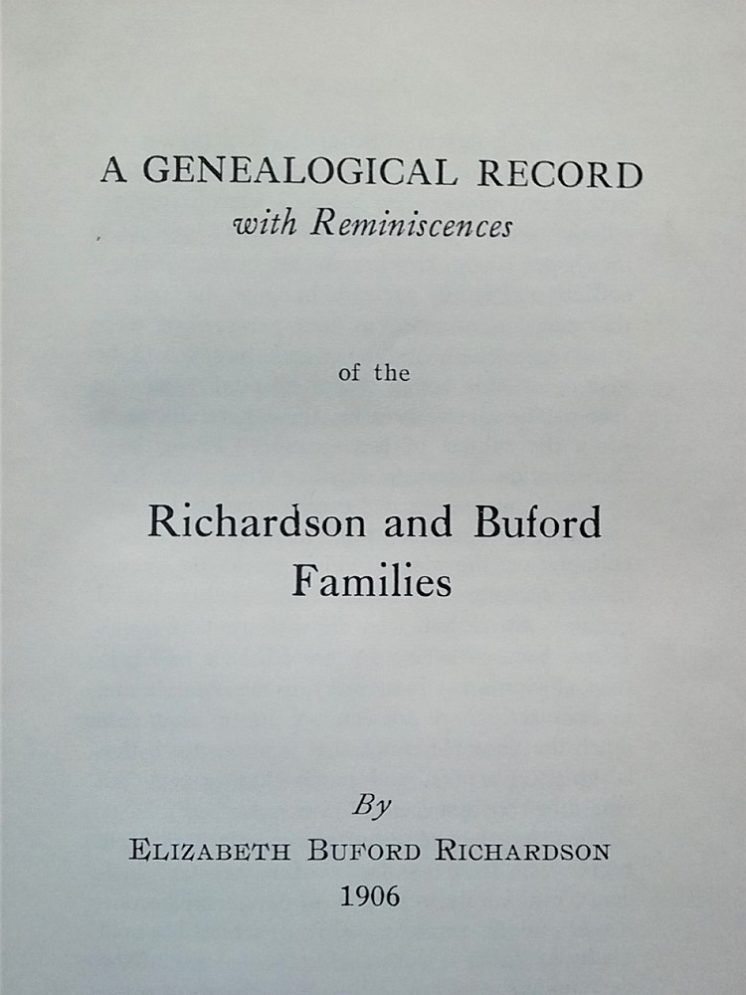For Father’s Day I Denounce My White Confederate Heritage
 I am disgusted by the Confederate flag, and by those white people who defend its display as “honoring their heritage.” I say this as a white native of the South, with deep Southern roots. I was born in Texas (slave state) to a mother from North Carolina (slave state) and a father from Georgia (slave state). I was raised below the Mason-Dixon line in Maryland (slave state).
I am disgusted by the Confederate flag, and by those white people who defend its display as “honoring their heritage.” I say this as a white native of the South, with deep Southern roots. I was born in Texas (slave state) to a mother from North Carolina (slave state) and a father from Georgia (slave state). I was raised below the Mason-Dixon line in Maryland (slave state).
The year I was born (1969), my father taught at an all-white private high school in Houston. The Civil Rights era raged. When the headmaster refused to desegregate the school, my father was part of a faculty exodus. My folks found a Maryland school that did not discriminate, and went to teach there. They raised me to believe in equality. But looking back through the history of the country, the full story of my family and race is a terrible thing: the Richardsons owned slaves for generations, and I can document it.
My dad was a Civil War buff. When I was a child, he told me many things about it, including: 1) there were Richardsons on both sides of the war, and 2) the Southern, slave-owning Richardsons were angry when their slaves were freed. I must have been 11 or so, and I didn’t get it. It seemed to me the good guys had won, and that the end of slavery was an unalloyed good that should have brought cheer to all. He explained it in economic terms: Slaves were like money, he said. When the slaves were freed, the Richardsons lost everything. That was the first inkling I had that slavery built the nation. In particular, by the Civil War, it remained the economic engine of the South. Thanks to slavery, lots of white Southerners were rich, and they were ready to fight about it. A 2019 Cambridge study of the Confederate Army showed “wealthier households … fought at higher rates during the Civil War … (and) a particular form of wealth—slaveownership … is positively associated with fighting.”
Union General William Sherman knew this; it comes through in the orders for his famous “March to the Sea.” Sherman’s March was a brilliant strategy: his armies were to live off the land while destroying the South’s industrial war-making capacity. This not only disarmed and demoralized the Confederates, it let Sherman operate without supply lines that could be cut. It made his armies less vulnerable, and more nimble. The quote I am thinking of is from orders he gave his troops about scavenging supplies:
As for horses, mules, wagons, &c., belonging to the inhabitants, the cavalry and artillery may appropriate freely and without limit, discriminating, however, between the rich, who are usually hostile, and the poor or industrious, usually neutral or friendly.
The words are plain. The war was being fought over slavery; it was the rich Southerners who owned slaves, and who started the war to protect those assets. Therefore, it was rich Southerners who were most hostile to the Union forces. Therefore: take all their horses.
The Richardsons of the antebellum South were rich. Slave ownership among them appears more or less ubiquitous. I possess a genealogical record that documents this. I can document their slave ownership, and their anger toward General Sherman. The anger about losing the war, in some cases, lasted into the 20th Century.
In contrast to the modern-day idiots brandishing the Confederate flag to “protect their heritage,” I denounce this heritage. White supremacy is something to be ashamed of.
My Genealogical Record
The relevant historical document shakes me to my core the more I study it. I am just coming to terms with the breadth of slavery information within it. It is a hard-bound book of 150 pages titled, A Genealogical Record with Reminiscences of the Richardson and Buford Families, by Elizabeth Buford Richardson, written in 1906. It contains the entire history of my dad’s side of the family from the early 1700s to 1906.
Like all books, depending on one’s focus and attention, it is many books. It contains so much, of such varied historical interest, that I have struggled to assimilate it all. My family is lucky to have such a record.
For one, it may be sorted into adventures at sea. The first Richardson in America was Edward Richardson, an English sea captain who settled in Virginia around 1730. By the end of the book, two subsequent Richardsons have gone to sea (and died there).
The book may also be read as a record of high infant and child mortality, a constant feature of its 175-year span.
I have also been struck by how many Richardsons married their cousins: a lot!
One of the perversely enjoyable aspects of reading the book is how many grisly Richardson deaths are recorded. The two deaths at sea were each on ships that exploded: one from a boiler accident, the other from a powder magazine. One of my ancestors died in an early elevator accident. A couple of them were murdered. One died when a horse fell on him. One suffered a “severe groin injury” during the Revolutionary War which he died of only years later — the redcoats blew his junk off!
But reading it recently, I consolidated all the references to slavery and the Civil War. What I put together has shocked and troubled me. For one thing, I realize only now that my father lied to me. Because if there were Richardsons on both sides of the Civil War, that is not recorded in this very thorough account. Instead, what I find is an entirely Southern family whose many sons universally joined the Confederate Army. I can’t find a single Richardson above the Mason-Dixon line in 175 years. If there was a Richardson presence in the Union Army, it has been omitted. If they existed at all, they were vastly outnumbered by the Richardsons wearing gray, every one of whom is delineated in their sickening rush to defend their indefensible way of life.
Why would my father lie to me? He died when I was 14 so I can’t ask him. It’s possible I misheard him or that I am misremembering. It’s also possible that he was referring to Richardsons we are not related to; perhaps he assumed a relation. But I think he may have been trying to protect me from the stain of it all, the shame of it. We are descended from these literal losers. I don’t know. He was definitely trying to convey that the war split the country, brother-vs.-brother and that kind of thing. Maybe he felt the safest way to do that was with a little lie – a “white” lie.
Now look. I know for a fact that my dad romanticized Dixie. As a young man he wrote a letter to his father, which we have; the quote is something like: “I feel on some days that the South may be seen as an occupied country.” That is sheer bullshit of course. It betrays the fact that, even though he was a modern man who refused to work for a discriminatory institution, he still had some backward feelings of “Southern pride.” As a young man anyway, he felt some allegiance to a fantasy Dixieland where, if you could only drain away the slavery, you could pine away for that culture of genteel manners and 1800s fashion.
But you cannot drain away the slavery. An unvarnished reading of my family genealogy clearly reveals the Richardsons owned slaves for around 135 years. Probably as soon as Edward Richardson set foot in the American colonies in the 1730s, and all the way up to the emancipation in 1863. The fact of owning slaves is stated so explicitly in so many places that, even when it is not stated, it was clearly part of the background fabric of life.
Edward settled in Virginia. Did he have slaves? It doesn’t say. But he was a rich man in a southern state in the 1730s. In other words, he totally did.
His son, William Richardson, moved to Charleston, South Carolina and became a wealthy merchant. William married Ann Guignard in 1768; a few years later, they moved to rural Sumter County. It was there they built a mansion, and a large plantation at the confluence of two rivers where they farmed rice. Perhaps cotton too, like other plantations in that area. The plantation was named Bloom Hill, which over time became known as Bloomhill (both variants may be found in historical records). The buildings no longer stand but it is recorded in the South Carolina register of plantations.
The question is not whether they owned slaves, but how many. The plantation exceeded 4,000 acres; in other words, they owned a lot of slaves. William and Ann had several children and their descendants comprise the branches of my family tree. Rooted at Bloom Hill, the Richardson ancestral homeland is this plantation in the deep South that used slave labor. As far as I can tell, every branch of the Richardsons owned slaves from the 1730s to 1863.
Given these facts, and given what we know about slavery in general, the chances that I have black relatives is 100 percent. There is no evidence of this in the genealogical record, but there wouldn’t be, would there?
Excerpts
Below I have excerpted nearly every reference to slavery in the book, with my comments.
(A word about the author, Elizabeth Buford Richardson. I can’t figure out our precise relation; she must be like a great great great aunt or something, perhaps a great great second cousin once removed; I can’t really decipher genealogies. Our precise relation could be easily determined as all the data is there, but it’s beside the point. She was a Richardson born in 1837, who lived through the Civil War, wrote the family record, and died in 1907. It is her voice throughout, and her spin on the facts. We may discern that she loved the South, hated the North, and was a good Christian who had no problem with slavery. In this she seems typical of my ancestors.)
p. 19-20. Early 1800s. Re: Elizabeth Richardson.
… her colored people were never allowed to want for anything … Her well-trained servants doing her faithful service, so that every thing went on like clockwork in that well regulated home. She was a devoted Christian.
This is the first explicit slavery reference. It is so casually thrown in there. I shudder to read the likely euphemisms “well-trained” and “well regulated.” What punishments were available from this devoted Christian? What kind of Django Unchained nightmare was really going on?
p. 35-36. Late 1700s-1835. Re: Faithful Davy and Honest Jack.
Davy, the faithful valet of Capt. William Richardson, deserves mention in this record. Davy was noted for his fidelity and devotion to his master and to his master’s family. During those troublous times, when the whole country was in a state of unrest and his master, young, impetuous, and high spirited; this devoted slave would not only shield his master in time of danger, but ever on the alert, would step forward at the right moment frequently preventing trouble and perhaps sorrow. When Davy died [in 1835] he was laid to rest in the west end of the Bloom Hill burial ground (which spot was appropriated for the colored dead), and his grave marked with a marble tombstone, the epitaph headed ‘Faithful Davy.’ A few steps farther on we may read the epitaph on the tomb of ‘Honest Jack,’ a faithful servant of Judge John Smythe Richardson, the third son of Capt. William Richardson.
I was able to find the full epitaphs of Davy and Jack on usgenwebsites.org. Here is the epitaph of “Faithful Davy”:
David, who was born 8th February, 1747, O.S.
He served his Master
Wm. Richardson
Faithfully through the Revolutionary
War and up to 1786, and after
that his Master’s widow &
eight children with the same
fidelity to January 1835 —
When faithful David died in peace.
Near him lies Binah his aged wife
who also served the same family well,
for nearly the same time.
Their example has been good & profitable
on the Plantation & we pray them Heaven —
W.T. White, Stone Maker.
Key words: “profitable on the Plantation.”
And here is the epitaph of “Honest Jack”:
Honest Jack
Died: 15 May A.D. 1848, aged 77 tears [sic].
This trustworthy servant was the friend of his
owner & watched his interest as if his own.
Ever thrifty yet sparing to himself. He left
86 dollars laid up from time to time for his
widow — Sally — & their children.
Condemn not his example in a lowly agent, High
& low in this world are terms of human note:
But, not to him with whom nothing is great, the
nothing insignificant. To all men then must not
this be the important question. Have the duties
of life as assigned to each station by Providence,
been conscientiously discharged.
It turns my stomach the way the final lines of this affectionate epitaph contain the very definition of white supremacy: “the duties of life as assigned to each station by Providence.” One can almost hear the modern white supremacists’ refrain, “Slavery wasn’t so bad … they loved him, they housed him, and fed him. Black people should be grateful to the white man.” But: they didn’t love him enough to free him.
p. 50. Circa 1830s. Re: William Guignard Richardson, oldest son of Capt. William Richardson.
He inherited Bloom Hill … But alas, the time came when he suffered great financial loss … His home, slaves, and in fact all his possessions were sold at sheriff’s sale … his younger brother, Judge John S. Richardson, bought in the ancestral home, and ‘Bloom Hill’ went not into the hands of strangers.
Human beings here are counted in a list of objects: “His home, slaves, and in fact all his possessions…” As well, the wording leaves open the distinct possibility that while the home was kept in the family, the slaves were not – making it quite possible that families were split up at the auction block.
p. 82: Mid-1800s. Re: John Smythe Richardson, fourth child of Captain William Richardson.
His colored people, of whom he was very considerate, never ceased to call him blessed. He built them a church and named it for his wife – ‘Elizabeth’s Chapel,’ and he engaged a minister to preach to them, that his colored people might have Bible instruction and Christian privileges … We can [figuratively] see him now, as in the long ago, seated in his comfortable carriage, drawn by strong, swift horses, the lines in the hands of an expert driver, who was also his faithful valet.
I assume “Christian privileges” means access to the afterlife.
p. 85-86. Circa 1827. Re: John Smythe Richardson’s wife, Sophia Hyatt, who was from Rhode Island.
She was delicate, but the change from the northern clime to this southern home agreed well with her; she took on flesh, which made her even more beautiful. She was intelligent, cultured, and well read … Although it was more than twenty-five years before the war between the sections culminated, yet at that remote period she was quick to discern the unfairness dealt by northern politicians to her adopted southland, whose cause she heartily endorsed. Could she then have looked through the vista of time, she would have seen her own four noble boys, grown to warrior men, in battle array against the northern foe. But she was true and just, and had she been with us in the hour of offended rights, her kiss of good-bye to her soldier boys would have been accompanied by the buckling on of their armor [figuratively].
In the story of Sophia Hyatt we see how, even though she had the misfortune to be born a Northerner, she was not irredeemable. She was true and just! The Civil War is characterized here as “the hour of offended rights” – including that God-given right to own slaves.
p. 111. 1865. Re: Margaret Muldrow Logan, the daughter of Susan William Ann Richardson and Thomas Muldrow Logan.
Margaret … married Robert Aiken Yongue … Their home was in Columbia, S.C., and was destroyed when Sherman burned that beautiful city … Sherman, that enemy of our South-land.
Here we come full circle to Sherman’s March. About the burning of Columbia, it is historically not 100 percent settled who did the lion’s share of it. Apparently, a lot of people were setting fires that day. The odds tip in favor of the blame belonging to retreating Confederates setting a blaze that got out of control. Wikipedia has an article about it with references.
The other point I want to make regarding Sherman’s March is that it took place in 1864. Elizabeth Richardson is writing her account in 1906, 42 years later, still bitterly muttering that the slaves were treated great and so why did Sherman burn the city. This family genealogy book is a Confederate document. But the same mutterings are heard in America to the present day.
p. 135. 1810. Re: Emily Richardson, who married John Ioor in 1804.
[They] lived near Statesburg, S.C., until 1810, when they and their three small children … moved to the Mississippi Territory, taking with them their large number of slaves.
To mention “their large number” can only serve to remind us of these white people’s extravagant wealth, and by extension, their God-given business acumen — and dominion.
The best I can say about my ancestors is that they were enculturated to believe in “stations assigned by Providence.” They were “of their time.” But, they were highly educated people with no excuse. Among their number are a preponderance of scholars, judges, and clergy, consistently praised in the record for their intelligence, sensitivity, and kindness. They must have been aware of the long-raging international debate about the morality of slavery — for instance, slavery was abolished in England in 1807, more than 50 years before the American Civil War. And yet the Southern states still attempted to perpetuate it. Think about it: if the South had succeeded against the North in 1865, slavery might very well have continued into the 20th Century. My ancestors may have been blithely “of their time,” but most of the rest of the world “of their time” felt revulsion.
The Richardsons deserved to lose it all. Sherman’s March was the best thing that ever happened to them. They needed to be forcefully disabused of the notion that they could defy the civilized world. With a time machine, I would burn down Columbia myself. (Parts of America appear to need burning down periodically.) The Richardsons of yore were many things – some of those things were wonderful, and remarkable! – but they were also a bunch of ignorant crackers.
Postscript
My father is buried in Milledgeville, Georgia. Milledgeville was the state capitol in the Civil War days. It was in the Milledgeville statehouse that the articles of secession were passed by the Georgia legislature. Imagine if secession had been allowed to stand: if states could leave the country over slavery, could counties secede from states? Could cities then secede from counties? The doctrine of secession is a logic of diminishing returns. Secession fever was a mass folly.
The cry of “states’ rights” basically killed the Confederacy. With every state a sovereign one, the Confederacy never gelled around the central government it needed to win the war. For instance, states withheld troops from the war effort as they saw fit. The political ideology of the South was muddled and idiotic.
Milledgeville lay along the path of Sherman’s March. In November 1864, 30,000 Union soldiers marched into it. Before they left, they entered the statehouse and staged a mock legislative session where they voted Georgia back into the Union. I will admit: that sounds like my idea of a good time.
After the war, Milledgeville was viewed as a symbol of the “Old South,” and so the capitol was moved to Atlanta, symbol of the “New South.” Today, Milledgeville is a small town barely two-thirds the population of the Union force that marched into it that day. Almost no one remembers the role Milledgeville played in secession, a role cheered by my forebears. History has consigned those terrible acts to the dustbin. Let them so remain.
With a time machine, I would smack my ancestry around, but I don’t have to: the Union Army did it for me. By the Civil Rights era, my lineage had finally left the wrong side of history.
Do you see, oh modern wavers of the hateful Confederate flag, how easy it is to denounce your heritage for what evils it may contain? Confederate flags are for one thing, and one thing only: burning.
Update: Robin Washington Interviews Jim Richardson About PDD Confederate Essay.
My other essays here.
Recommended Links:
Leave a Comment
Only registered members can post a comment , Login / Register Here















11 Comments
Bill Nash
about 5 years agoDave Sorensen
about 5 years agoJim Richardson (aka Lake Superior Aquaman)
about 5 years agoJim Richardson (aka Lake Superior Aquaman)
about 5 years agoSam Todd
about 5 years agoJim Richardson (aka Lake Superior Aquaman)
about 5 years agoMargaret Buchanan
about 5 years agoJim Richardson (aka Lake Superior Aquaman)
about 5 years agoKerinski
about 2 years agoKerinski
about 1 year ago